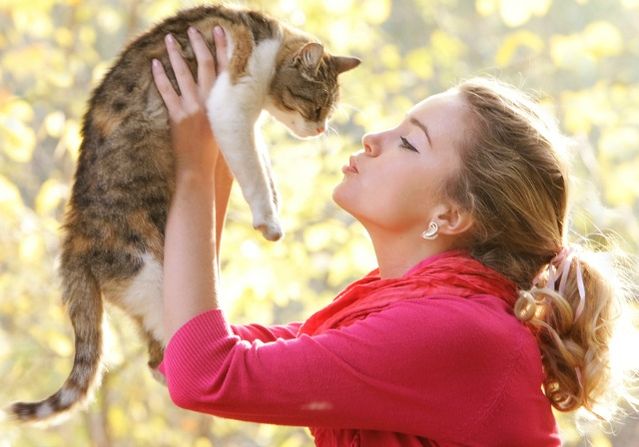Animal Behavior
What We Learn From Furry Felines
From ancient Egypt to our modern homes, cats teach us a few things about life.
Posted June 20, 2016

Animal-human bonds have sparked a literary epidemic for years; everyone enjoys reading about furry critters. Furry companions are in movies, books, on television shows and play an integral role in households and society. Cats have been around as domesticated furry companions since ancient times — literally.
The ancient Egyptians were known as the first civilization to embrace the whiskered furballs as pets over 4,000 years ago. As the hunter-and-gatherer period ended, individuals began to take up residence and settle on farms. During this time, food in the form of grains was stored in barrels, attracting devilish critters such as mice. Cats took advantage of the situation and hung around these towns, helping rid the people of their “pest” problem. In exchange, humans befriended these cats.
“When humans were predominantly hunters, dogs were of great use, and thus were domesticated long before cats. Cats, on the other hand, only became useful to people when we began to settle down, till the earth and — crucially — store surplus crops. With grain stores came mice, and when the first wild cats wandered into town … the cats were delighted by the abundance of prey in the storehouses; people were delighted by the pest control,” according to the Smithsonian.
From hired mousers to popular pets
As far back as 9500 B.C., a burial site in Cyprus provided the first hard archaeological evidence of the feline-human bond, and in ancient Egypt, cats were often portrayed in sculptures, pictures and were even mummified with their humans. Unlike dogs, cats do not have many roles in the workforce, but they still work, as they are often kept around to catch all of the unwanted houseguests — rats. In fact, the U.S. Postal Service employed cats in the late 19th and early 20th centuries to eliminate rats and other unwanted rodents from the workplace.
Besides chasing mice, a cat’s main role in society, even dating back thousands of years, is human companionship. In a way, feral or undomesticated cats domesticated themselves by inviting themselves into human territory. These feral cats over time became housecats and now these feline companions are more popular than ever. In the United States, cats are one of the most popular pets, with nearly 86 million domesticated cats making up approximately 43 percent of U.S. homes.
Cats enjoy the moment
Sitting on his perch, basking in the sunlight without making a move, the family cat can resemble a statue in a meditative state. As humans, we can learn a lot from these hunting animals — to be still and stay in the present. Cats can teach humans not only to be patient but to enjoy the moment. Cats have also been shown to contribute health benefits to humans by lowering their blood pressure and preventing depression.
“For many people, interacting with their cat provides a sense of comfort and relief from everyday stress. Caring for another creature and being sensitive to their needs can help distract cat owners from their daily struggles, worries, and negative emotions. By lowering stress levels, cat owners may experience lower blood pressure as well as less anxiety,” according to Texas A&M University.
Cats exhibit emotional honesty
The relative lack of literature on cats, I think, reflects their independent spirit — the common expression “like herding cats” describes a task that’s nearly impossible. All things being equal, there should actually be more literature on cats. But why isn’t there? Do cats represent a relatively carefree therapist with a wet nose that you don’t have to emotionally or physically invest in often unless you choose to do so? That’s not to suggest that there aren’t many passionate cat lovers. I had a patient who walked her cat on a leash, and she took pleasure from knowing that it was a rare thing to do. Do cat owners differ psychologically from dog owners? These are topics worth further study.
Compared to dogs, cats are independent — they come and go as they please, often making for a low-maintenance pet. This can be beneficial to elderly individuals who are not very mobile or individuals who are extremely busy and do not spend a lot of time at home. Although cats do need attention, they do not need to be walked, play fetch or be taken to social events like their canine counterparts.
In addition to being independent, cats do not hide their feelings. If they do not want to be around you, they will let you know. On the other hand, they are just as capable of curling up on the couch with you and purring on your lap. A furry feline may be a great way to boost your mood and give you a sense of companionship, while ridding your house of all the unwanted rodents.
“A cat has absolute emotional honesty: Human beings, for one reason or another, may hide their feelings, but a cat does not.” — Ernest Hemingway
Contributed by Kristen Fuller, M.D.




